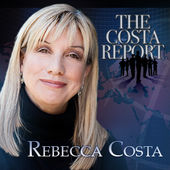Dennis Kucinich Calls For End To Current âDebt-Based Monetary Systemâ
Early this year, former 16-year veteran Congressman Dennis Kucinich proposed six steps to get America back on track. At the top of his list? A call for the Federal government to reclaim control of the nation’s monetary system. Speaking on The Costa Report, Kucinich outlined his National Emergency Employment Defense Act (NEED), a bill he originally proposed in 2011. The bill “restores to Congress the ability to create and regulate money, which is how the Constitution was written,” Kucinich said. NEED reverses the decision made in 1913 to give the Federal Reserve â an entity owned by, and operated for the benefit of, private banks â the power to create and print U.S. currency. Kucinich’s bill would put the Federal Reserve back under control of the U.S. Treasury, thus ending a 100 year-long policy of allowing private banks to manufacture money.
According to Kucinich, there are two reasons why this change is urgent. First, it would “change accounting rules so that banks are prohibited from creating money out of nothing.” And second, it stops banks from misrepresenting their reserves. The current practice, known as “fractional reserve banking,” allows banks to create account entries that “pyramid” the amount of reserves they actually have.
Kucinich believes placing the monetary system under control of the U.S. Treasury would also help in addressing the staggering debt crisis America faces. “Money equals debt right now,” says Kucinich, implying that the more money printed and put into circulation, the further into debt the country falls. He describes the current $18 trillion debt as a “debt-based monetary system,” where “money comes into existence primarily through private bank lending.”
Hear the full interview with Dennis Kucinich. Visit The Costa Report.





